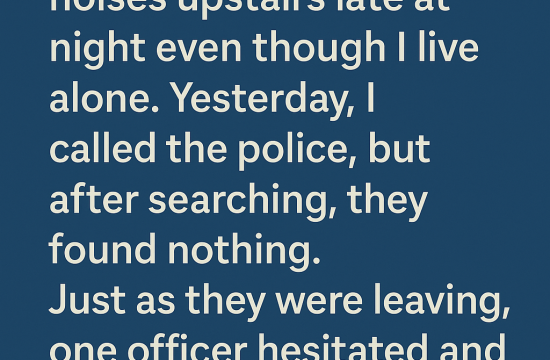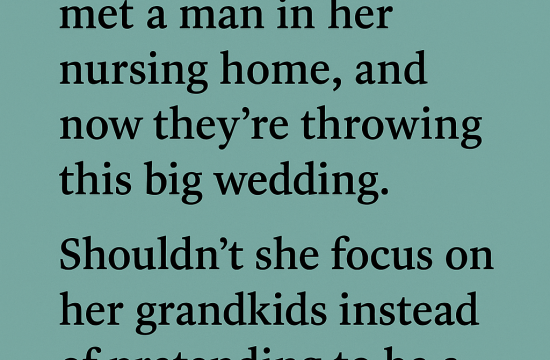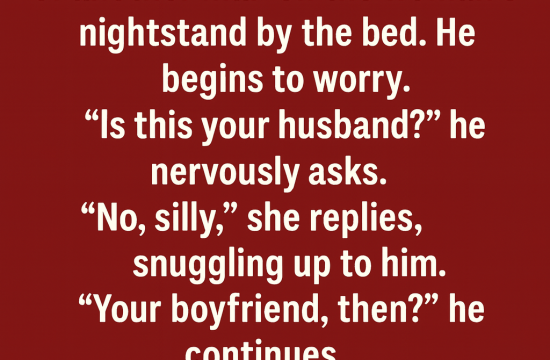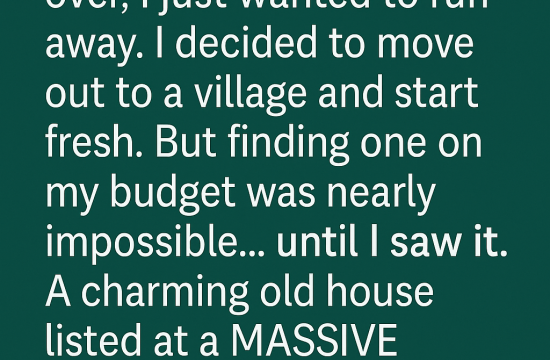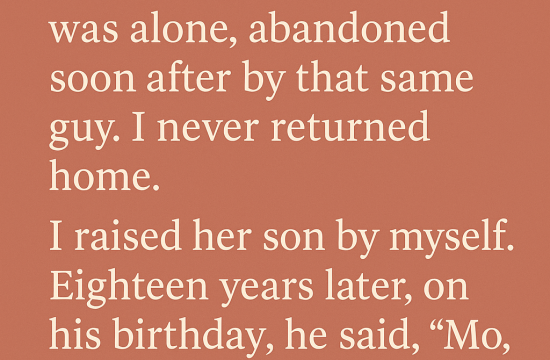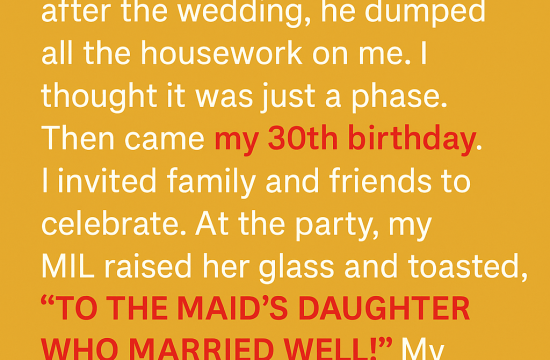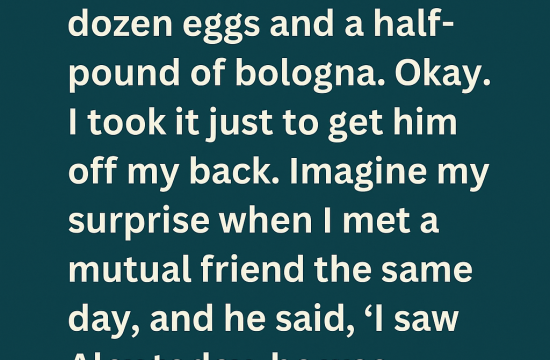My husband is a sailor. The main purpose of my mother-in-law’s life, it sometimes seems, is to catch me with another man while he is away on a voyage. She follows me from time to time, makes surprise visits, and checks up on me like a detective on a case.
One day, someone told her I wasn’t alone at home. Fueled by suspicion, she broke into the flat, stormed into the bedroom, and froze when she found me sitting on the floor beside a small child holding a paintbrush.
My heart was racing. Not because I had done anything wrong, but because her sudden entrance startled the boy. I was still holding a cup of water we were using to rinse the brushes.
“Who’s this?!” she barked, pointing at him like he was dangerous.
“This is Jonas,” I replied calmly. “He lives upstairs. His mom had an emergency at work, so I’m babysitting.”
Her eyes narrowed. She didn’t believe me. She scanned the room like Sherlock Holmes, as if she expected to find a half-dressed man hiding under the bed.
“No men here,” I added, standing slowly. “Unless you count Jonas, who just turned six last month.”
The boy blinked at her and asked timidly, “Can we go back to painting now?”
She didn’t answer. She just glared, tense and fuming, then stormed out, muttering that I was “too calm” to be trusted.
This wasn’t new. Ever since I married her son, Ana had treated me like a ticking time bomb set to destroy her precious sailor boy. I tried to understand—it couldn’t be easy having your only son gone for months at a time, trusting his marriage to someone she barely knew. But her obsession was wearing me down.
Later that night, I called my husband.
“She broke in again,” I said gently.
He sighed. “What was it this time?”
“She thought Jonas was my secret lover.”
He groaned. “I’m sorry. I’ll talk to her again.”
I didn’t hold my breath. He’d had that talk before. She always apologized to him but treated me the same.
Weeks passed. Then one day Ana rang the doorbell instead of barging in. She smiled stiffly. “I want to spend some time with you. Bond a little.”
I was wary but let her in. We sat on the balcony with coffee. She studied me like I was under interrogation.
“You’ve been married four years and still no children,” she said finally. “Why?”
“Maybe in the future,” I answered calmly.
“The future comes fast,” she clicked her tongue. “What if he comes home and you’re still thinking about it?”
I looked at her. “I don’t want to bring a child into a family that doesn’t trust the mother.”
Her eyes flickered. She wasn’t expecting that. She left without another word. That night, I cried—not out of guilt, but exhaustion. I loved my husband, but I was tired of constantly proving myself to someone determined not to believe me.
A month later, my husband returned. After a quiet dinner, he surprised me:
“Let’s invite Mom to lunch. You and me.”
At lunch, Ana arrived dressed for church, cake in hand, smile plastered on her face. We ate politely until my husband put down his fork.
“Mom, I know you’ve been checking on her. Following her. Breaking into our home. Accusing her without proof.”
She stiffened. “I just worry.”
“If you keep this up, you’re not protecting me. You’re disrespecting me—and her.”
She looked at me, defensive. “You’re too perfect. Too calm. Women like you hide things.”
I spoke softly. “I’ve been hiding something. How much it hurts to be treated like I don’t deserve your son. I’ve never cheated, never lied. But every time you accuse me, I wonder what more I need to do.”
She fell silent. That lunch ended quietly. But something changed.
She stopped breaking in. She kept her distance. Then one day I found her crying on a park bench. She’d lost her job after 23 years.
“I’ve been hard on you,” she admitted quietly. “I was scared of being left behind. First my son moved out, then he married you, then he’s gone for months. My world shrank. I didn’t know how to deal with it.”
I listened. It wasn’t a formal apology, but it was real. Slowly, we began talking more.
And then, the biggest surprise—I found out I was pregnant. After years of waiting, it happened naturally. My husband was overjoyed. We agreed to keep it quiet at first, but Ana found out.
She arrived with fruit, vitamins, and a smile. “I’m not perfect,” she said. “But I want to be here. If you’ll let me.”
I let her in.
During my pregnancy, she transformed. She cooked, came to appointments, rubbed my swollen feet. And the day our daughter was born, she cried harder than I did.
We named her Elena. When Ana stood over her crib whispering blessings, I realized something had shifted.
Six months later, as I rocked Elena to sleep, I thought about it all—the accusations, the break-ins, the tears, the slow thaw.
People lash out when they’re afraid. Fear wears many masks: suspicion, anger, control. But with honesty and boundaries, fear can soften into something else.
Respect. Even love.
I still lock my doors. But now, when the doorbell rings and Ana is standing there with soup or a tiny dress for Elena, I open with a smile.
Because life isn’t about being right all the time. It’s about deciding what’s worth holding onto. And sometimes, the people who start as thorns in your side become the very ones who stand by you when it matters most.




